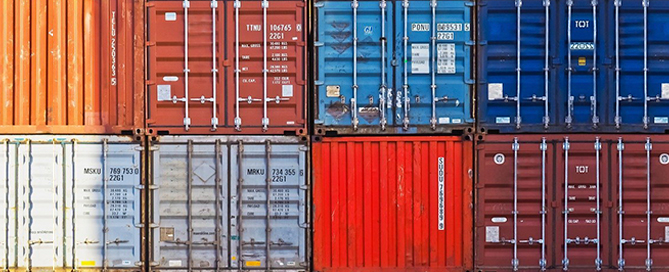On the 6th of December 2017, the European Court of Justice (ECJ) issued a very relevant judgment regarding contractual restrictions on sales through the Internet (case 230/16).
The matter submitted to the Court was referred by the Regional High Court of Frankfurt (Germany) regarding the dispute between Coty Germany GmbH (principal), as manufacturer of luxury cosmetic goods and Parfümerie Akzente GmbH (distributor). Coty intended to amend the existing selective distribution agreement by introducing a clause upon which the distributor would be prevented from selling Coty’s goods by means of non-authorised internet platforms. Akzente refused to agree and proceeded to sell Coty’s goods through Amazon.de. Coty brought an action to stop such sales, which was dismissed by the court of first instance in Germany. As a result, Coty appealed and the Regional High Court of Frankfurt requested from the European Court of Justice a preliminary ruling to determine whether such clause is in accordance with the EU legislation and case law.
Four questions were raised regarding the matter at issue and the European Court of Justice’s answer can be substantiated in three major blocks, as follows,
(1) A selective distribution network for luxury goods is not prohibited by Art. 101 (1) TFUE (Treaty on the Functioning of the European Union) to the extent that,
- Resellers are chosen on the basis of objective criteria of a qualitative nature and the selective distribution rules are imposed uniformly on all potential resellers.
- The characteristics of the product requires such network to preserve its quality and ensure its proper use; and
- The criteria laid down do not go beyond what it is necessary.
The Court considered that the need to preserve the image of prestige and luxury of the products (in this case, cosmetics) justifies the existence of sales restrictions in the framework of selective distribution agreements; and that this is not in contradiction to that laid down by the Judgment Pierre Fabre of 13/X/2011.
(2) The clause at issue does guarantee that the products will be sold and associated with authorised distributors, thus making sure that the quality and luxury image of the products are preserved. This includes a proper sales environment, in line with the agreed sales’ quality conditions set out in the selective distribution agreement, which cannot be guaranteed if the sales are conducted through a non- authorised third party, whom is not bound by any commercial or contractual relationship with the manufacturer.
Consistently, such clause contributes to preserving the luxury image among consumers and in doing so it helps to preserve one of the main characteristics of the goods.
Likewise, it should be stressed that, unlike in the Pierre Fabre case (13/XII/2017), the clause does not constitute an absolute prohibition to sales in the Internet, and thus, it does not go beyond what is necessary to preserve the luxury image of the goods.
The Court also took into account that according to a recent survey, about 90% of the main distribution channels in the context of online distribution are constituted by distributors’ own online shops.
Consequently, the clause under scrutiny must be regarded legal in relation to Art. 101 (1) TFEU, provided it has the objective of preserving the luxury image of the goods; it is laid down uniformly (and not applied in a discriminatory fashion); and that it is proportionate in the light of the objective pursued.
(3) The third issue tackles the matter of whether that provision can be benefited by the block exemption under Regulation 330/2010 by reason of Art. 101 (3) TFEU, bearing in mind that it constitutes a hard-core restriction set out in Article 4 of said Regulation.
The Court considered that the selective distribution agreement executed by the parties allows the distributor to advertise via the Internet on third party platforms as well as to use Internet search engines, having as an effect that customers can reasonably find the products in authorised “online” distributors.
It follows that even if the clause restricts a specific kind of Internet sale, the measure does not amount to (i) a restriction of the customers of distributors within the meaning of Art. 4(b) of Regulation 330/2010; (ii) a restriction of authorised distributor’s passive sales to end users, within the meaning of Art. 4(c) of said Regulation.
In the light of this judgment it can be fairly concluded that the European Court of Justice stresses the importance and the right of the manufacturer to preserve the image of luxury and quality of its products, by acknowledging the legality of a restrictive measure in selective distribution agreements meant to ensure that said fundamental product characteristics are not jeopardised by non- authorised internet sales platforms. What cannot be concluded from its wording is whether such prohibition would lose its legal grounds and cease to be enforceable in cases where the third-party internet platform happens to meet the expected standards of quality and luxury of the products at issue.
Eduardo Vilá
Vilá Abogados
For more information, please contact:
8th of December, 2017



